The Velocity of Our Vulnerabilities
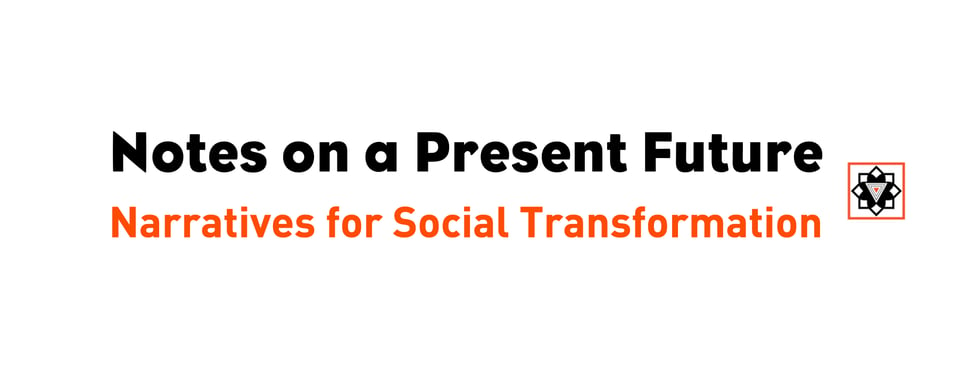
Welcome back to Notes on a Present Future. If this is your first time here, this newsletter uplifts the stories and the work of people shaping the world to build just futures now.
(This issue is rather supersized. I opted for stuffing this one with updates rather than leaving things for the next one because even in this climate of grief and shock, we all have been beautifully busy. This gives me hope. If we are going to navigate the coming years and emerge with some sense of joy and justice – or at least mutually assured survival – we will need to sustain this energy to build new visions and new futures. So settle in for a nice, long read.)
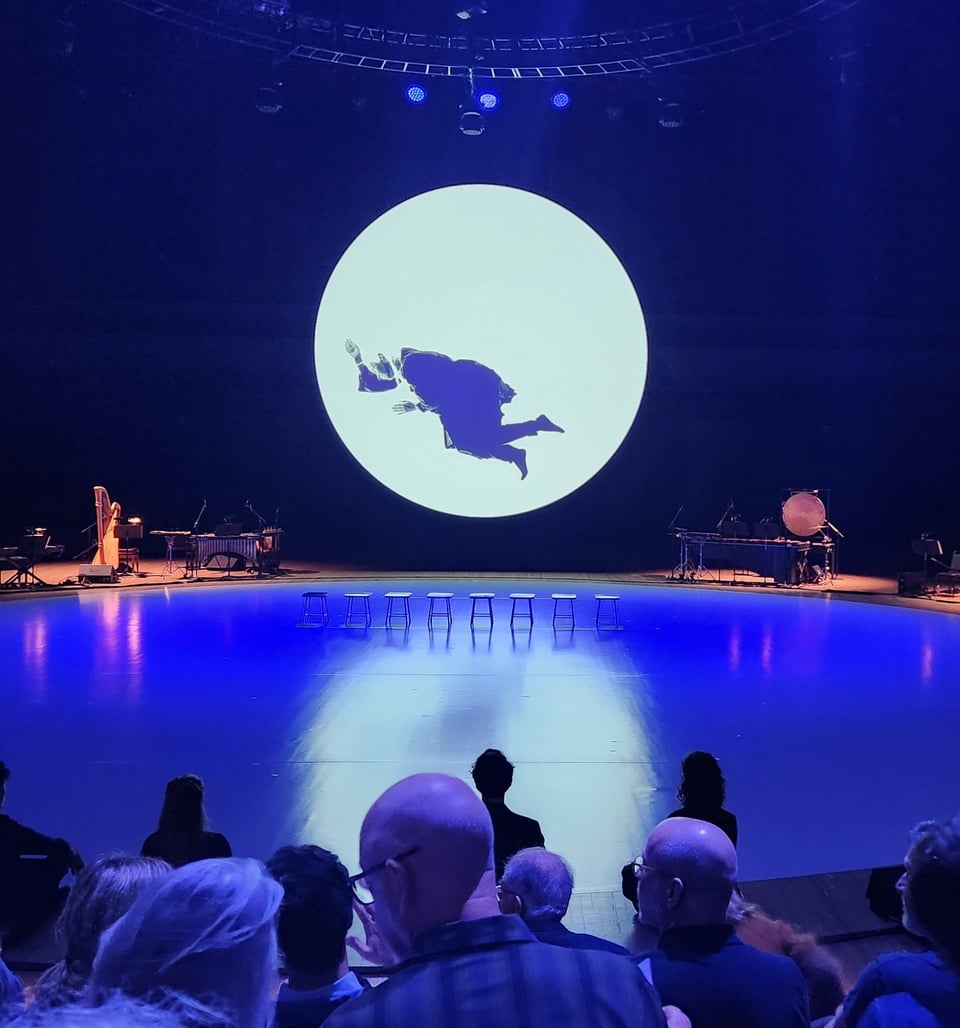
What’s inside
1. A note from my desk
2. Updates (mine and, more importantly, yours)
3. Reading, watching, listening
4. Stay in touch and collaborate with us.
A note from my desk
The third anniversary of the Center for Transformational Change was this past September 29, 2024. For our second anniversary last year, I celebrated. But the week after that, on October 7, 2023, the world imploded. Celebrating the Center’s anniversary this year felt discordant.
And the aftermath of that day is little short of a global hellscape, with my own government financing relentless atrocities against Palestinians. International humanitarian law and humanitarian aid – always fragile, historically flawed – are dissolving in real time in front of our eyes. At the same time, we are witnessing inadequate responses to climate disasters across the world. As my friend José Luis de Vicente said in response to the floodings in Valencia, “This week has not made me very optimistic about how prepared governments are... As always, the only ray of hope has been in solidarity among thousands of volunteers... But if this is a dress rehearsal for bigger impacts, the system is showing very little preparedness and not a lot of resilience for governing under these circumstances.” And now, just weeks after the shocking results of the US elections, the US House of Representatives has passed a resolution which could end in granting unfettered executive power over civil society—echoing trends in countries like India, Hungary, and Argentina.
This is our sector. At the best of times, those of us working in the social sectors are challenged. This past year has reshaped our reality in ways that are hard to comprehend for anyone holding onto a shared sense of humanity—let alone the pursuit of joy and solidarity. We find ourselves in various stages of tearing down, rebuilding, seeking stability, or walking away.
It will take an enormous amount of strength for all of us to navigate what is coming. And an enormous amount of support. But as a mid-career woman of color staring down an authoritarian administration determined to erode all our social protections, my own work at the Center feels precarious. I worry about the health and future of this young, small Center I so carefully planned and launched. And the sector’s funders have not kept pace with our current realities. Like many people in this sector, I am now wondering if the answer is salaried work with a larger organization (let’s chat) or continuing to raise operating funds (or both.)
Even as I explore other ways to earn money and generate resources, I’m also deeply reflecting on the role and future of the Center in this shifting landscape. I remain committed to keeping the Center active and focused on fostering both local and transnational solidarity through our approach to strategy, story production and curation, and collective convening. At the same time, I’ve been contemplating the power of my own narrative and its potential to inspire justice and social transformation. I will continue storytelling, producing, executive producing, moderating, and curating, and strategizing. This is the work I’m passionate about, and it’s why the Center exists.
At the heart of this work is a dedication to collective governance, power shift, and amplifying the voices of others. At the heart of this work is community.
Just after the US election, I read 10 Ways to Be Prepared and Grounded. The piece presents a framework for preparation and resilience by building self-trust and connecting with supportive communities to counteract the fear and isolation promoted by authoritarian regimes. The author, Daniel Hunter, emphasizes the importance of adapting to the political landscape and envisioning a positive future through four practical strategies for resistance: protection of vulnerable communities, targeted action to protest policy, civic defense, and building alternative systems.
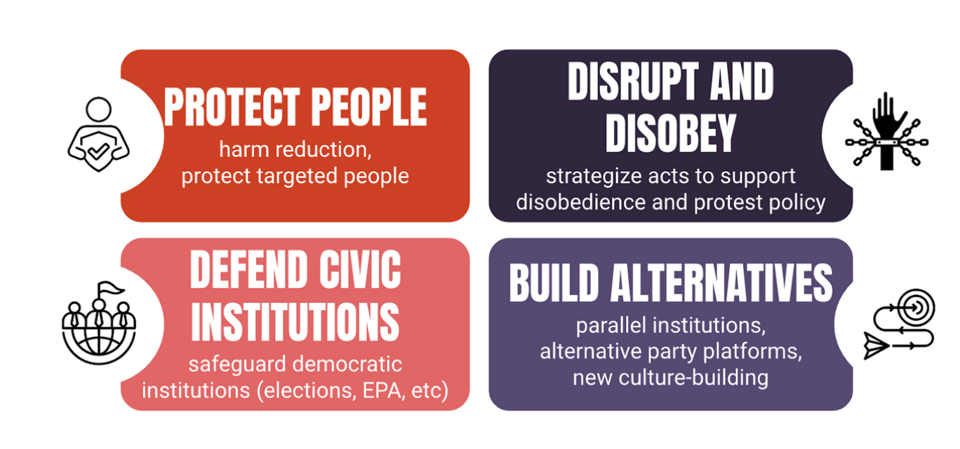
When I planned and launched the Center, I committed to focusing on the bottom right quadrant, “Build Alternatives,” and very specifically “new culture-building” – and to connect to other organizations and networks working on the other three in this framework. I remain committed to this. Given our current reality, I think all of us have to commit to protecting targeted people and each other, as a matter of first course. But we have to keep building toward shared joyful futures.
We were made for this. Our work, our missions, our collective actions are the foundations of transformation. Remind yourself of this whenever you need to in the coming years: Our existence itself is resistance.
Now, to the updates…

Updates
Mine:
Everything in moderation: This year I’ve rediscovered my appreciation for moderation and facilitation. I’m used to speaking about my own projects and frameworks, but over the past few months I’ve been invited to design and moderate conversations that uplift others’ work. And I love this role. One of our goals at the Center is to do more convening and conversation work in the next few years, to open up creative ways to build shared understanding, foster collaboration and cooperativism, and cultivate community. It’s a form of leadership I want to exercise more as we move through our multiple precarities and coming chaos.
Some of these conversations have been:
If Not Aid, Then What?: We co-produced one of the panels in our UNGA side event with The New Humanitarian. Recognizing that post-WWII international systems to prevent atrocities and mitigate effects of conflict on civilians are failing, we talked about the possible futures of humanitarian aid. TNH wrote a summary of both panels here. Our panel video is here.
Global citizen deliberation for AI governance: I moderated this TechSalon with Connected by Data as a UNGA side event and wrote the summary here.
RAKSHA’s launch party: Aarathi Krishnan asked me to host her company’s launch party and it was so much fun. (More details on her company are below in “Updates.”)
Along with these, I moderated Q+As about the US border industrial complex for the Abrazos tour of “Borderland: The Line Within” (more info on that below in “Updates”); served as a guide and group moderator at the Opportunity Collaboration; facilitated a conversation with Senain Kheshgi at Vista House in Los Angeles about community building for west coast documentary filmmakers; and designed a conversation with Phil McKenzie around AI, ethics, and governance for the Spark Ideas Festival in Atlanta. It’s been a generative time.
(If you want to read more about the role of moderation in social transformation, Collectively Owned Strategies describes how funder-owned strategies are limiting transformational change and argues that when all stakeholders share power, resources, and responsibility, it leads to more engaged, adaptable, and community-driven solutions. The piece highlights the need for experts in moderation and systems orchestration to facilitate these collaborations.)
(Also: Talk to me if you want to work together on conversation or convening design.)
Stand Up for Madinah: I executive produced this short documentary by Zainab Sultan about Delaware’s first Muslim woman state legislator, Madinah Wilson-Anton. Madinah successfully led the State House to a Gaza ceasefire resolution, while also working as a stand-up comedian. I came on board because Zainab is a filmmaker to watch, and because I find Madinah’s balance of politics and comedy so intriguing, especially now, especially when Black and brown women are navigating power and participation in the public square at a time of political backlash. The film was released in November by Al Jazeera Witness.
LACA I’m a recovering attorney and haven’t practiced in many years, so service to the profession hasn't been a primary focus. But the years ahead will demand sharp, dedicated attorneys to defend people and shape the rule of law. With that in mind, I’ve joined the NYU Law School Alumni of Color Association to support that.
Like many of you, I’ve left Twitter… …and I’m going to keep dancing.
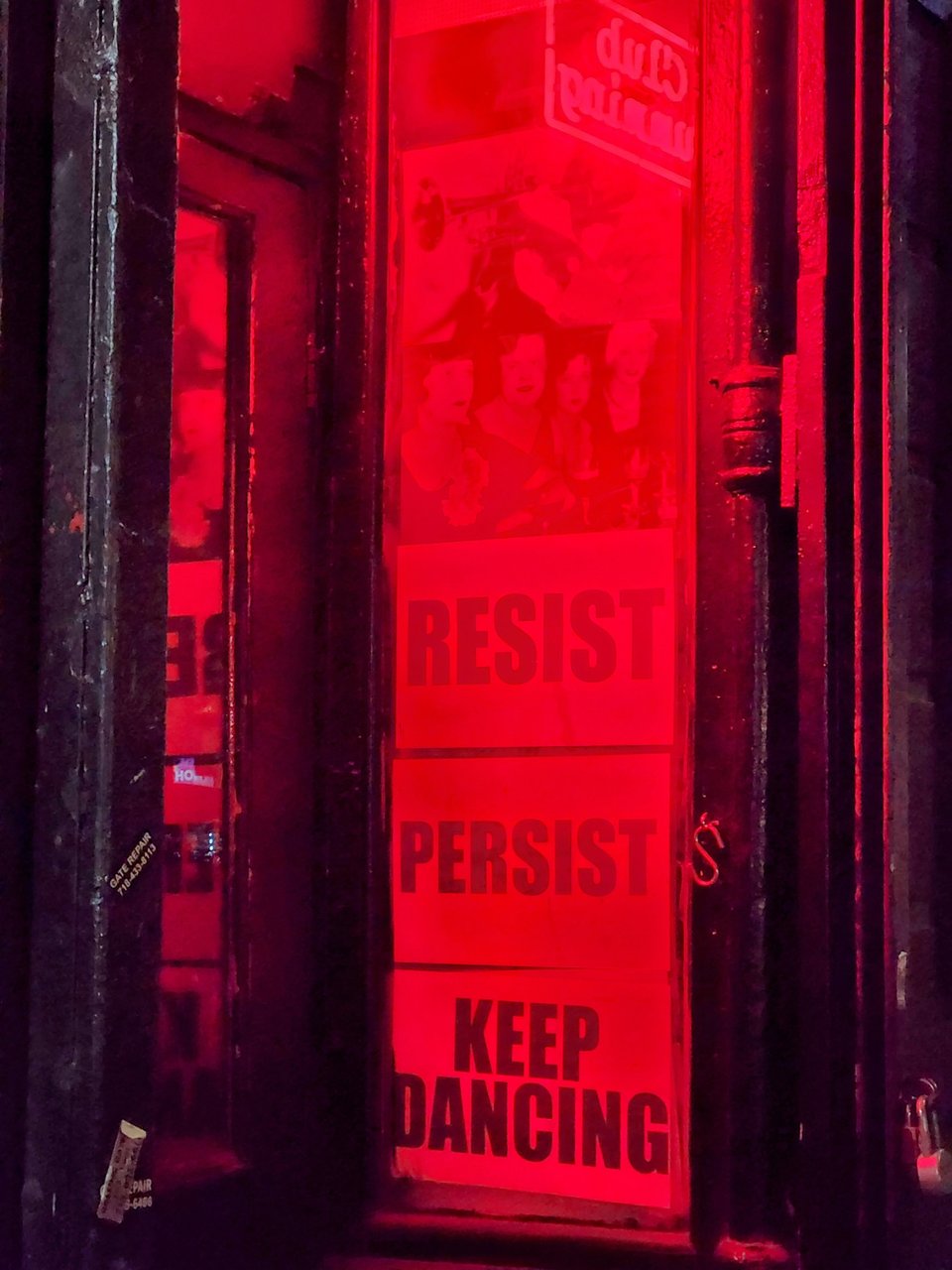
Yours:
AI, Artists, and Africa: Electric South recently released a fantastic resource for and by African artists, filmmakers and other creatives on how to navigate the current AI landscape and how to integrate AI into their work ethically should they choose to do so. The guide has been created by, with, and for African artists, but is relevant to creative communities around the world. (I proudly serve on the board of the organization.)
Building Indie Cinema Audiences: Keri Putnam, a Fellow at the Shorenstein Center on Media, Politics, and Public Policy at Harvard Kennedy School, has issued a new report on the massive untapped US audience for independent cinema. Keri examines the how, why, and what of indie film audience engagement at a time of transformation in the industry – and makes a renewed and timely call for a “new, consolidated streaming destination.”
The Border Industrial Complex: Ahead of the US election, Pamela Yates and Paco de Onís of Skylight Pix mounted their 27-city Abrazos community engagement tour for Borderland | The Line Within. I was honored to play a small part in the tour, which activates audiences to address the US “border industrial complex” – massive privatized profit centers around immigrant detention and deportation. Given the incoming administration’s draconian and inhumane immigration plans, the film’s moral clarity is more urgent than ever, and Skylight is continuing screenings on request. (On a related note, the community engagement tour is innovative and very effective – and I’m thinking about writing about this more soon.)
Borderlands Studios Filmmakers and Macarthur Fellows Cristina Ibarra and Alex Rivera recently launched Borderlands Studios with Arizona State University. They’ve created a filmmaking initiative focused on the social experience of the U.S.-Mexico borderlands. The studio's inaugural cohort of four Visionary Fellows will each receive $50,000 to support their projects.
Democracy Beyond the Ballot: New Media Ventures now has a sister 501c3 nonprofit organization, New Rising Ventures, to expand commitments to political innovation around long-term social progress and democracy beyond the ballot. Recognizing that building electoral political power alone is insufficient to build a truly equitable democracy, the nonprofit will focus on creating social power across climate change, education, healthcare, the economy, and cultural change. I've written before that I believe placing a primary focus on electoral power hinders the project of social transformation and has hampered social and political progress. I'm excited to see what NMV and NRV accomplish together.
Foom.live: Foom is a strategic simulation designed by Scott Smith and Susan Cox-Smith at the foresight group Changeist to help organizations explore potential futures of AI before encountering them in reality. The resource allows participants in commercial and non-commercial settings to engage in dynamic scenarios with various stakeholders, enabling them to understand the consequences of their decisions through a co-designed AI model that aids in developing the simulation and generating in-game content under human guidance.
Gentle Anarchy: Carne Ross – founder and former head of Independent Diplomat – has launched a new blog and podcast called “Gentle Anarchy” through which he explores the politics and culture that sustain current global systems through a lens of neo-anarchy and international people-led political movements. Carne’s first podcast episode with Daniel Levy, Middle East negotiator, is a compelling listen on Palestine. And his most recent post, “Trump: A Systems Analysis: Part 1,” provides a sobering and provocative perspective on cultural and political drivers that may have led to the election of Trump that we need to now confront and unravel.
Global risk and protection: Aarathi Krishnan launched her new company, RAKSHA Intelligence Futures. With this new company, she is asking: How do we make sense of geopolitical and economic chaos before things become a crisis? We are living through intersecting crises of war, famine, displacement, genocide, and economic, social, and political inequality. It is beyond time for new communities to lead, design, and govern. We need audacious, unapologetic leadership from people with lived experience building new business and organizational models. I am excited RAKSHA exists to help organizations make decisions in the face of our intersecting geopolitical crises, and I am beyond excited to support another woman of color leader.
HoopCycle HOOPcycle is a mobile art installation that recenters basketball’s history and brings its Mesoamerican roots to the forefront. Conceptualized by artist Marisa Morán Jahn and architect Rafi Segal, this vibrant, mobile basketball court explores the intersections of recreational equity, cultural heritage, and public space. I love this project.
Media Mastery in the Digital Age: For those of you in Canada, Beth Janson announced a new program for independent producers, content creators, and cultural leaders called Schulich Mini-MBA: Media Mastery in the Digital Age. The program equips participants with the skills needed to navigate today’s rapidly evolving post-COVID, post-strike, consolidated media landscape.
The Midnight Kingdom: Jared Yates Sexton has created a series of lectures and video essays to explain the present moment in the US through understanding how white supremacy, religious mythologies, and conspiracy theories are shaping society and leading to power consolidation. Jared’s voice is crucial as we move ahead into 2025 and beyond, and he’s designed the series to help us understand how to navigate out of our current situation.
One Six Comics: Alan Jenkins and Gan Golan have created a compelling comic book series that asks what kind of country we would be living in had the Jan 6 attack on the Capitol succeeded. After the results of the November 2024 US elections, this one hits differently and even more urgently.
People Not Code: Rachel Coldicutt of Careful Trouble published a white paper with The British Academy calling for the establishment of a Digital Civil Society Observatory, to anticipate, understand, and mitigate the ongoing societal impacts of technologies and ensure that innovation delivers public benefit and a stronger society. It’s a great idea.
Rethinking Media Distribution: The independent media sector has been in freefall, and distribution and audience engagement have been casualties. Christie Marchese and her Kinema team and Emily Best and her Seed & Spark team have collaborated to create a free living toolkit to help filmmakers, video creators, funders, and collaborators to manage their own distribution.
A Solidarity Toolkit: Following the US election, narratives have been proliferating on social platforms and in mainstream media that too often misplace political responsibility and try to sow division among Black, Indigenous, Latino, and Asian communities. IllumiNative, a Native women-led organization empowering Native peoples by amplifying contemporary Native voices, has created a downloadable zine offering guidance on building solidarity with and among Global Majority communities.
Shift the Power: Sara Bonyadi is part of an international group of non-profit professionals who have launched the 'Shift the Power' Community of Practice. The CoP aims to be a liberatory and anti-oppressive virtual community that connects people working on shifting power within humanitarian aid, global development, and peacebuilding. CoP members will contribute to existing international initiatives by building bridges between them and leaning into feminist, anti-racist, decolonial, and disability-inclusive community-building principles.
Social Justice Podcasts: Will Coley has compiled a comprehensive list of podcasts with a social justice angle produced since 2020 for our listening pleasure.
Sounding the Alarm: The Building Movement Project has issued a new report detailing the threats faced by US nonprofit and movement organizations in our current geopolitical climate. The report should provide guidance to funders and supporters to work on bolstering the infrastructure in which these groups do their work.
Strengthening Nonprofit Strategy: Sushma Raman, former Executive Director, Carr Center for Human Rights Policy at Harvard and Interim Executive Director of Greenpeace, is launching a new online strategy class for nonprofit and NGO leaders from January 8-10, 2025, to address critical challenges facing the social sector. Sushma has kindly extended a 10% discount to readers of the newsletter (Use code LINA).
Support for Indian filmmakers: I’m a member of the Bitchitra Collective, a group of Indian women and non-binary filmmakers. The Collective has announced the 3rd Bitchitra Collective Documentary Film and Media Fellowship. Deadline: December 30, 2024.
Taking Action Where We Are: Organizer, educator, and curator Mariame Kaba has an upcoming workshop series called “How Do I Take Action Where I Am? A Workshop Series for Grounding Ourselves in the Fight Ahead.” The series is for people who are new to activism and organizing and wish to start learning how to activate now.
Tarot for Governance: The Media Economies Design Lab at the University of Colorado invited practitioners from various open-source communities to use tarot as a tool for sense-making about governance transitions. The Lab produced a set of tarot-inspired cards, then consulted them, pulling cards for each contributor and encouraging them to interpret them to inspire wisdom about community governance. Via Nathan Schneider.
Thank You For This World: UNDP Eurasia produced a short film titled Thank You for This World, which explores the climate anxieties and hopes of young Georgians. The film, which premiered in Tbilisi, highlights local climate initiatives and is directed by Rezi Dgebuadze, a youth climate ambassador and member of Generation Nexus—a UNDP regional network of youth activists focused on climate, peace, and security. The film is inspired by W.S. Merwin's poem "Thanks." Karen Cirillo, who works with UNDP Eurasia, told me I inspired the selection of the poem – I sometimes curate poetry on my Instagram page – which warmed my heart.
Worlds Apart: In the run-up to the U.S. elections, Lucy Carrigan created a poignant series of photo essays “Worlds Apart, Living Right Next Door” in Madison County, Western North Carolina, a rural, predominantly conservative area currently recovering from Hurricane Helene. The election may be over, but the resonance of the stories Lucy tells stretch far beyond electoral politics into this community’s relationship to climate issues.
Reading, watching, listening
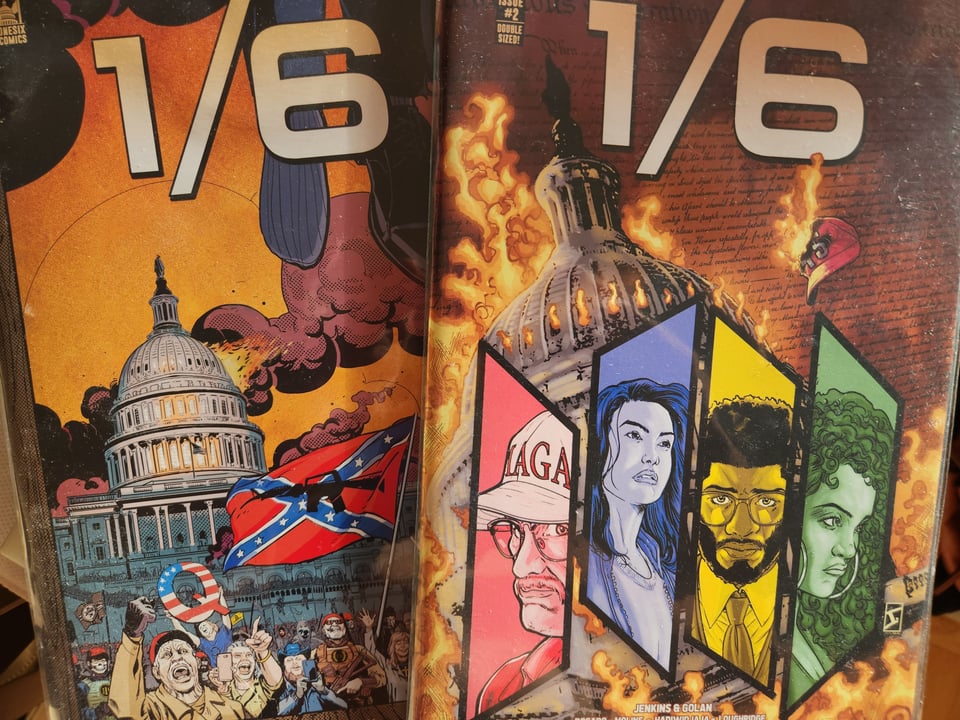
What I’m reading:
My Project 2025. The poem by one of my favorite writers, Saeed Jones, is a deep howl of love and defiance that sits deeper in my sinews every time I read it.
Scaffolding the Wonder of Existence: Joost Vervoort writes that experiencing life's mysteries is crucial for individual and societal well-being. He proposes the concept of "infrastructures of mystery"—systems designed to support access to experiences of wonder, awe, and the unknown—as essential for social flourishing and a more compassionate engagement with the world. This framework could be applied to various sectors, from religious institutions and education to healthcare and environmental policy, fostering a deeper appreciation for the inherent strangeness and interconnectedness of life.
Searching for Hope After Oct 7: Lisa Goldman's deeply thoughtful and harrowing essay, offers deep insight into the lived experiences of Israelis and Palestinians in the wake of October 7th. Based on extensive personal reporting, the piece moves away from pronouncements of officials and pundits to focus instead on a poignant account of how ordinary people feel and think. It's a superb piece of writing, both honest and raw.
Band Aid at 40: The re-release of Band Aid's "Do They Know It's Christmas?" has ignited strong criticism for the song’s stereotypical depiction of Africa and its patronizing charitable approach. While some maintain it was crucial in raising awareness and funds during the Ethiopian famine of 1984, many more condemn the song's outdated and offensive imagery and tone. As Lena Bheroo of Bond said, "Initiatives like Band Aid 40 perpetuate outdated narratives, reinforce racism and colonial attitudes that strip people of their dignity and agency.”
Courage to Stop the Climate Crisis: Sally Rooney’s piece provokes us to finally confront our collective lack of political will to confront and stem the global climate crises (spoiler alert: It’s unfettered capitalism). This line particularly hurt after the US elections: “In practice, a handful of voters in US swing states have more power to determine the speed and scale of planetary overheating than billions of other people on Earth.” Her call to action to build outside our current political systems resonates deeply.
Sudan News Sweep: Sudan News Sweep provides independent news and analysis on the ongoing Sudan conflict, combating the information blackout imposed by warring factions. The blog aims to amplify Sudanese voices and create a freely accessible public resource for stakeholders, including humanitarian workers, government officials, and the international press. After a brief hiatus during which they reached the grim 1-year anniversary milestone, Sudan News Sweep returned to posting last week.
The Black Wall Street Times: Greenwood One Hundred: Nehemiah Frank, founder of The Black Wall Street Times, gifted me a copy of this special issue marking 100 years since the Tulsa massacre – which, I’m sad to say, I didn’t know enough about previously. I’ve learned so much from pages of stories about Tulsa's Black Wall Street founders, activists and policymakers.
We Are The Builders: Deepa Iyer, an amazingly prolific community organizer and cultural producer, has written a children’s book to help kids find their roles in movements, teaching them to be in community together for mutual benefit and progress. I wrote about the book prior to its September 2024 release. The book, with illustrations by Romina Galotta, is beautiful. I was happy to attend one of her launch events, and it was simply a joy.
Program or Be Programmed: Doug Rushkoff's 2010 book argued that the crucial question regarding the internet is whether we will control technology or be controlled by it, and offered ten "commands" towards mastering digital literacy and shaping the future. Rushkoff has updated the book this year to add an eleventh command contemplating an era of AI and Web3.
If We Burn: Vincent Bevins’ book provides a novelistic real-time analysis of the successes and failures of people-led movements and revolutions between 2010-2020. I bought it last year, and it stayed on my to-read pile until a few weeks ago. I’m rather glad I waited, because it feels very of this moment, and is valuable for those of us seeking to effect lasting change at local, national, or global levels.
Beautiful Solutions: Global problems demand interconnected, transnational, networked solutions – and we already have all the knowledge and expertise we need. The authors of this book have gathered over seventy contributors to build a “toolbox for liberation” setting out our collective wisdom and reminding us that another world is not only possible, it’s being built every day.
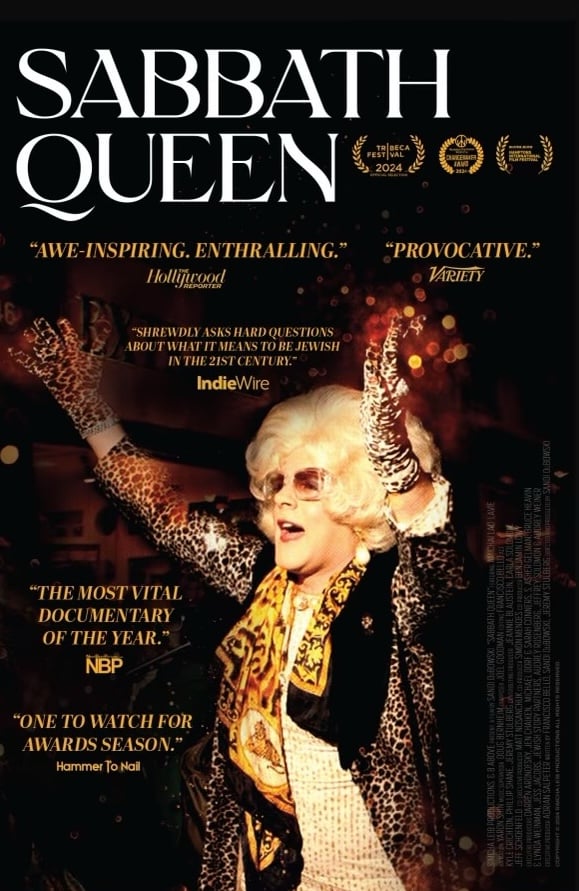
What I’m watching:
Sabbath Queen: Over 21 years, Sandi Dubowski filmed Rabbi Amichai Lau-Levie, dynastic heir of 38 generations of Orthodox rabbis, drag-queen rebel, queer bio-dad, and the founder of Lab/Shul—an everybody-friendly, God-optional, artist-driven, pop-up experimental congregation. (I’ve been honored to attend some of the congregation’s special gatherings, and each time it was a magical experience.) The film presents Amichai’s quest to reimagine religion and ritual in the 21st C, challenge patriarchy, and stand up for peace, ceasefire, and an end to the Occupation in Palestine. The film’s in theaters now. Look for it.
Another World is Possible: BYkids’ documentary, "Another World Is Possible" follows 20-year-old climate activist Helena Marschall as she leads a youth movement in Germany pushing for effective climate action, demonstrating that young people's activism is achieving tangible results. The film showcases their impactful strategies and offers hope for a sustainable future, highlighting the power of collective action in the face of the climate crisis.
Harnessing Global South Solidarity: This is a great panel at MozFest Gambia, exploring Global South-South solidarity for the future of tech governance.
Agatha All Along. I’ve become a bit tired of superhero universes. But there are sometimes gems to be found. (See e.g. The Penguin.) And my favorite this year is Agatha All Along. It's fierce, deeply female, and wickedly funny and poignant – especially episode 7, which asks us: Are you rooted in nature? Are you nimble in your craft? Do you have a coven? (All good questions for our time.)
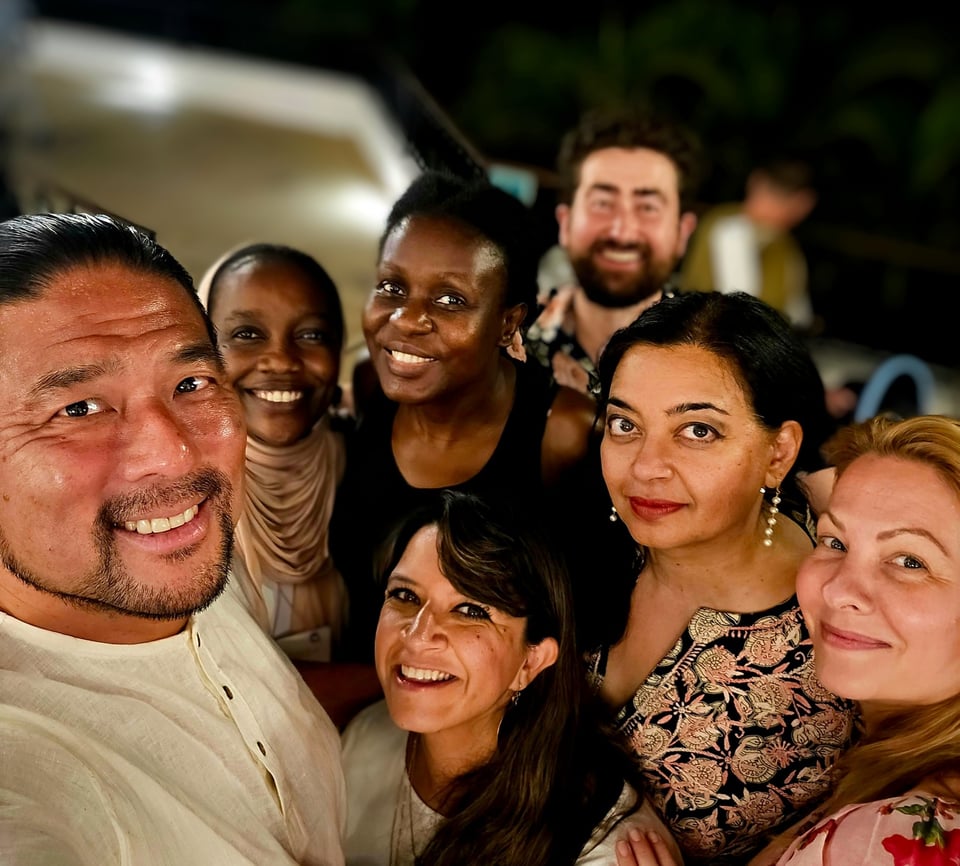
What I’m listening to:
Stories Humanitarians Tell: This podcast episode from The New Humanitarian explores the complexities of storytelling in driving effective crisis response, revealing that while human stories are more impactful than data, humanitarians often undervalue their role as storytellers. (Amen.)
Trump and the UN: What Awaits, Come January: This podcast episode of To Save Us From Hell, from Mark Leon Goldberg and my niece Anjali Dayal, is an essential listen for anyone curious about Trump's potential approaches to the United Nations post-election, with scenarios ranging from complete disregard to overt collaboration with Russia.
Soil of Leadership: I wrote about Britt Yamamoto’s book (for which I was a reader) in the last newsletter issue. Since that writing, Britt and his Perennial colleague Priti Bhattarai released the audiobook for those of you who prefer to contemplate new leadership frameworks through listening.
Heems: Veena: Punjabi-Queens rap at its finest, Heems’ second album of 2024 plumbs the depths of generational trauma of diaspora South Asians by blending joyous music, prose poetry, unflinching honesty, and love for community.
The Softies: The Bed I Made: This is a sweet album, the kind that feels like you should listen on a rainy autumn Sunday afternoon with your feet up, drinking a mug of chai, pondering friendship and love.
Khruangbin: A La Sala: This is the mellow psych-funk album you listen to at dusk on that rainy Sunday, after you’ve listened to The Softies and switched to a glass of wine.
Billy Idol: Rebel Yell 2.0 – The Remixes: Reviving some core Gen X memories, this one is just for fun.
See you soon.
In solidarity and joy,
Lina
To work with us: Center for Transformational Change
(We specialize in strategy, convening, and original productions related to social transformation across displacement, climate justice, equity, and cultural engagement)
To book me for speaking: My Chartwell Speakers Profile
To learn more about my work: www.linasrivastava.com
To support this newsletter, please visit this link and send it to your friends.
To ask to amplify your social transformation project, please email here
To reach me on social media: LinkedIn, Twitter, Bluesky, Instagram, Mastodon
P.S. The title of this Autumn 2024 newsletter comes from an article written by Lydia Polgreen in the aftermath of the US 2024.
You are on this list as a member of my community. If you would like to change how you receive this newsletter: Update your preferences or Unsubscribe from this list below.
Copyright 2024, Lina Srivastava. All rights reserved.